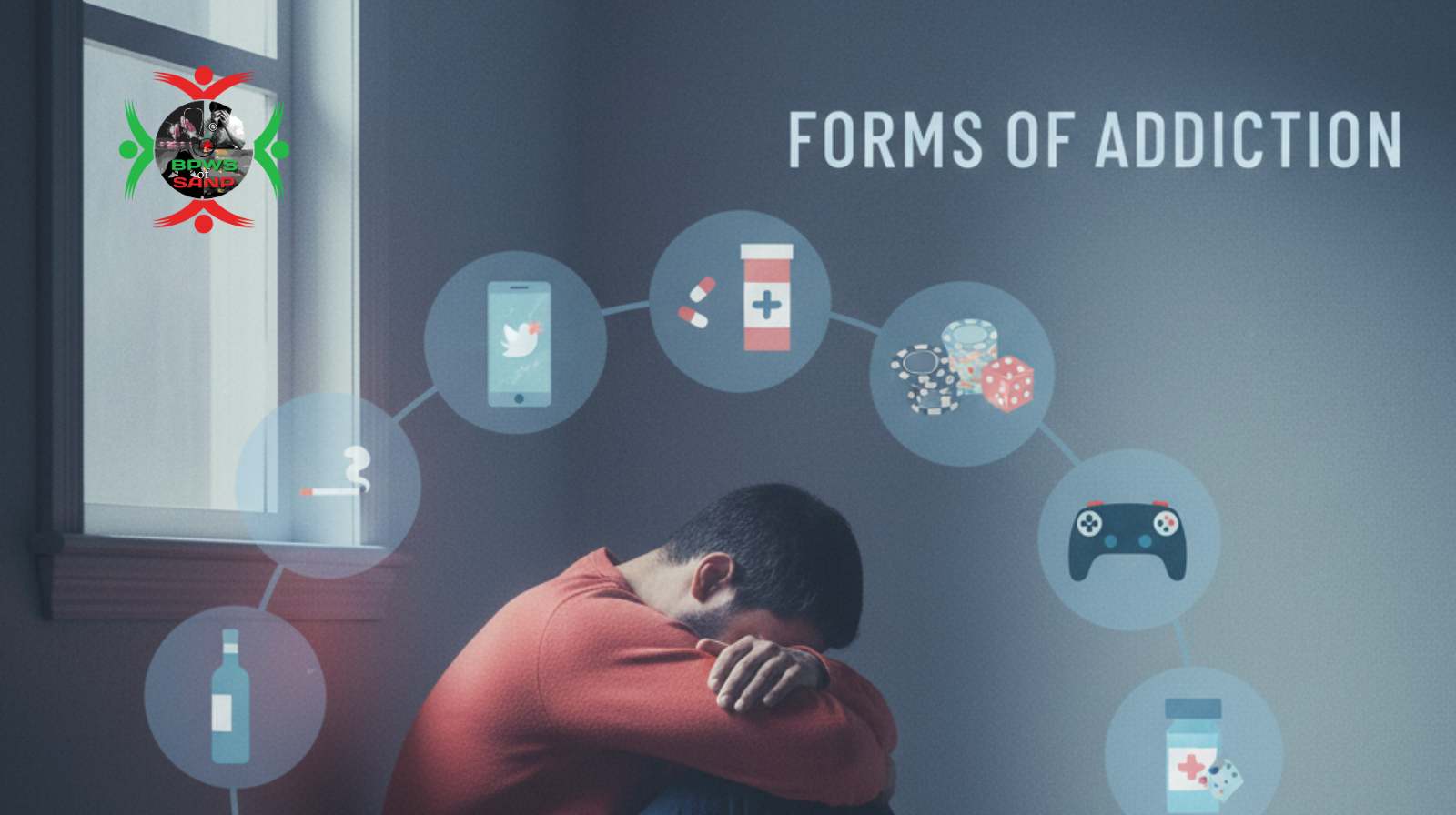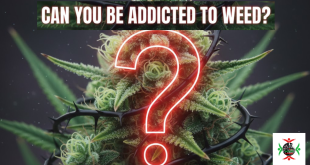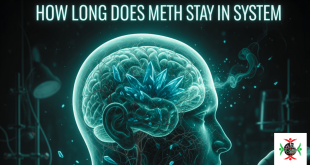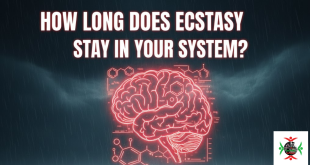
Understanding the Different Forms of Addiction
When we think of addiction, many of us likely envision a substance such as drugs or alcohol. But as significant as these are, the experience of addiction itself is broader and more complex. It’s something that can take many forms, and it affects people from all walks of life – no matter their age or economic status. Know The Different Types Of Addiction Getting an idea of the different types of addiction is the starting point in identifying its symptoms and finding the right kind of help for yourself or someone you love.
This article shall discuss the main classifications of addiction, describing what they are like, their types and how they work. We’ll also discuss common signs and symptoms to watch for, treatment options, and how to find help. By the end of the book, you will understand more about this difficult condition and how it is possible to recover.
Behavioral Addictions
Behavioral addictions are characterized by an irresistible urge to perform a particular behavior, despite negative consequences. Unlike substance addictions, the high stems from the activity itself rather than an external chemical. The reward system in the brain is triggered by the drug, and dopamine released creates a craving for more.”
These substance behavioral addictions can wreak havoc in a person’s life, causing money problems, friendship or family issues, alcohol or drug abuse and even psychological issues.
Common Behavioral Addictions
- Gambling Addiction: Sometimes referred to as the “quiet disorder” because it’s not easily recognized, an addiction to gambling can lead to many negative consequences. The outcome can be high debt, unemployment and broken relationships. The thrill of the potential win keeps men and women hooked even when they are losing.
- Gaming Addiction: The World Health Organization recently classified gaming disorder as a mental health disorder. It is characterized by lack of ability to control gaming habits, prioritization of gaming over other life interests and daily activities, and continuation or escalation of gaming despite the occurrence of negative consequences. There is much that is compelling about the immersive environments and reward systems in many of today’s video games.
- Internet and Social Media Addiction: It is an infatuation with surfing the net, social media or shopping online. The steady drip feed of notifications, likes and fresh content can breed ‘FOMO’ – fear of missing out – and a strong fear of psychological pull.’ It can disrupt work, school and face-to-face social encounters in the real world.
- Sex and Pornography Addiction: Addicted to sexual thoughts and behaviors. People can be drawn to porn so much that it has bad effects on their health, job and relationships.
Substance-Related Addictions
Substance-related addictions, or ‘substance use disorders’, describe the habitual consumption of a substance while experiencing adverse effects. The body and brain adjust to the drug’s presence, frequently resulting in tolerance (the need for increased amounts of the drug or combination of drugs to achieve the same high) and withdrawal (physical and emotional reactions when use is stopped).
The physical health effects of these addictions can be extremely serious, leading to organ damage, infectious disease and overdose
Common Substance-Related Addictions
- Alcohol Addiction (Alcoholism): Alcohol is one of the most frequent drugs of abuse. Alcoholism is defined as an illness in which a person is unable to stop or control his or her drinking because he or she has become physically and emotionally addicted to alcohol. Chronic heavy drinking can have serious consequences on health, from liver disease, heart problems and even cancer.
- Drug Addiction: It is a general definition which encompasses many types of substances used..
- Opioids: This of course refers to prescription painkillers (such as oxycodone and hydrocodone), but also includes illicit drugs (like heroin and fentanyl). Opioid dependence is a growing public health concern because of its lethal overdose potential.
- Stimulants: Members of this group are cocaine, methamphetamine and prescription stimulants like Adderall. They would then produce intense feelings of euphoria and energy, but they also cause dangerous cardiovascular problems and intense psychological experiences.
- Nicotine: A very addictive stimulant that is naturally occurring in tobacco products. The dangers of smoking are clear, but nicotine itself can be incredibly challenging to quit.
- Cannabis (Marijuana): Although it is commonly misunderstood as being very low-risk, marijuana can be addictive. Cannabis use disorder can result, which is when someone isn’t able to quit using the drug in spite of it getting in the way of much of their life.
Signs and Symptoms of Addiction
Although the details may be different from one thing to another that’s addictive, a lot of signs of addiction are universal. It is important to be aware of these patterns early.
Key Indicators to Watch For:
- Loss of Control:An inability to control the use or behavior.
- Cravings: Strong desire to use the substance or engage in the behavior.
- Increased Tolerance: having to use more of the substance/engage in the behavior (intense exercise) to get the same effect.
- Withdrawal Symptoms: Emotional and physical symptoms that develop when someone suddenly stops use of the substance or ingestion of a food.
- Shirking responsibilities: Neglecting duties (work, school, housework) in favor of using or because of hangover effects.
- Drop in Activities: Loss of interest in activities, hobbies and other things that used to be important.
- Persistent Use Despite Damaging Effects: Using the substance even though there are clear harmful effects upon one’s body, mind, or relationship.
- Concealment and Separation: Take measures to prevent others from knowing about the substance use or action.
Treatment Options for Addiction
The good news is that addiction can be treated. Getting better is a path and there are multiple solutions to help people take back their lives. Sometimes the best treatments are those that target each person’s unique concerns.
- Detox: Detox: If substances are involved, frequently the first step. This process is keeping the acute physical withdrawal symptoms managed safely under medical care.
- Therapy and Counseling: Behavioral therapies are the cornerstone of addiction treatment.
- Cognitive-Behavioral Therapy (CBT): Assists people in reversing unhealthy thinking and behavior patterns regarding the addiction.
- Individual and Group Counseling: Offer a safe space to uncover the root issues of addition while also learning coping skills.
- Medication-Assisted Treatment (MAT): Offer a safe space to uncover the root issues of addition while also learning coping skills.
- Support Groups: Self-help groups such as Alcoholics Anonymous (AA), Narcotics Anonymous (NA), and Gamblers Anonymous (GA) offer the understanding and fellowship necessary for lasting recovery.
Where to Find Help
If you or someone you know is struggling with substance abuse, realize it doesn’t have to fit in a hat as we do and help can be found.
- SAMHSA National Helpline: 1-800-662-HELP (4357) – The SAMHSA Help Line is a free, confidential treatment referral and information service for individuals and family members facing mental and/or substance use disorders.
- National Council on Problem Gambling: 1-800-522-4700 – Offers resources and support for gambling addiction.
- Your Primary Care Physician: A good place to start is with a doctor. They can evaluate your situation and connect you with specialists and treatment centers that are right for you.
Your Path to a Healthier Future
Knowing how addiction comes in many shapes and sizes and recognizing those signs is an important first step toward empathy, not judgment. Addiction, whether it is to behaviors or substances, is a complicated health condition that can be treated by professionals and support systems. By making such conversations stigma-free and open, we can ensure that more people are able to seek their path out of the darkness, into the light of recovery and a healthier future.
If you read that and something rings true, take action immediately. It is brave to ask for help, asking for help is the first step towards healing.
 Prevention from Suicide, Addiction, Narcotics and Pollution. Withdrawal and Recovery Facts of Narcotics | Symptoms of Suicidal thoughts & Ideations | Effects of Environment Pollution | Understand Addiction withdrawal
Prevention from Suicide, Addiction, Narcotics and Pollution. Withdrawal and Recovery Facts of Narcotics | Symptoms of Suicidal thoughts & Ideations | Effects of Environment Pollution | Understand Addiction withdrawal






